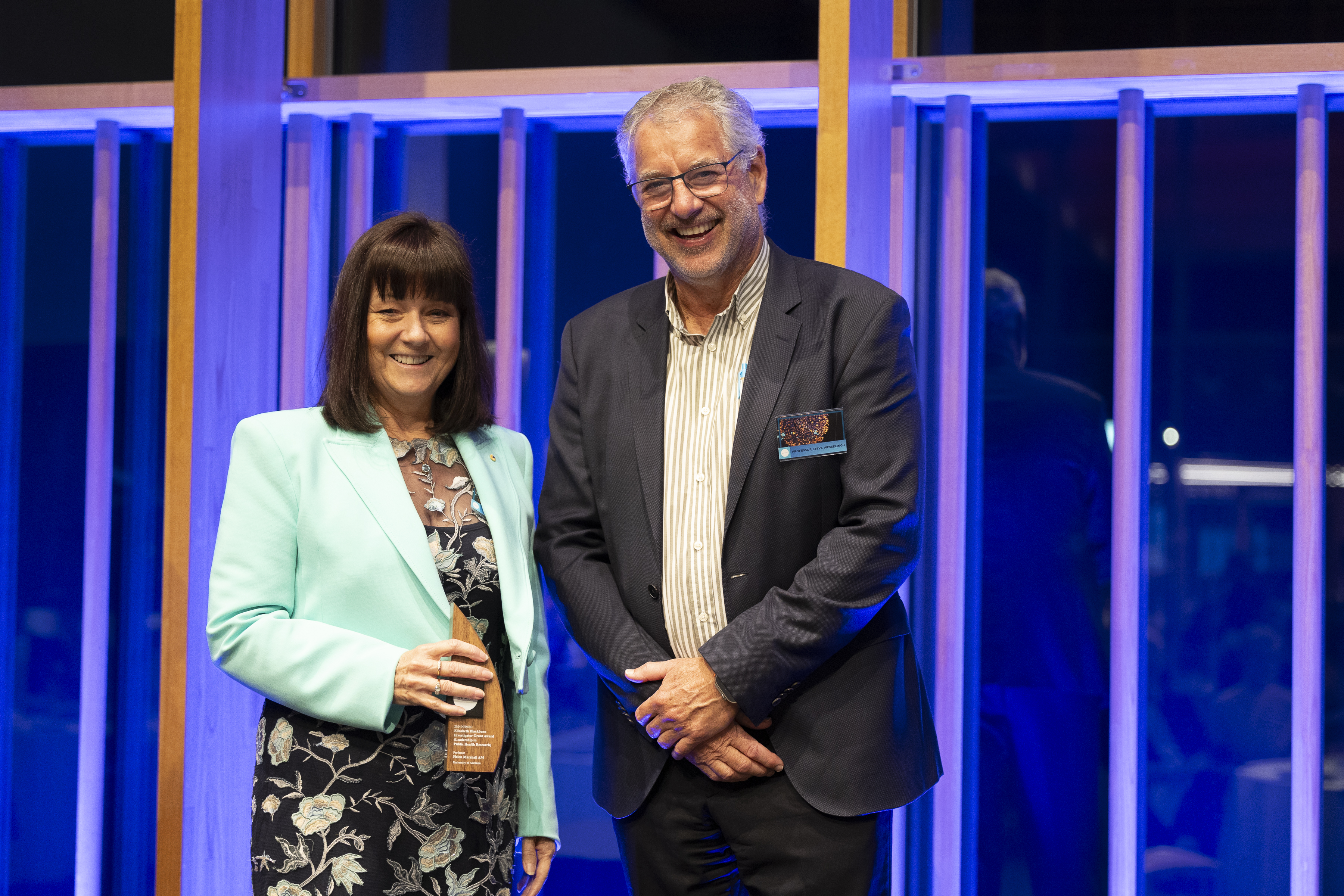Professor Helen Marshall AM is the Professor of Vaccinology and an NHMRC Leadership Fellow at The University of Adelaide, and the Clinical Research Director at the Women’s and Children’s Health Network in South Australia. Professor Marshall’s research area focuses on preventing life threatening infections in children and young people through improving immunisation effectiveness, safety and impact. Her main focus throughout her extensive research career has been the prevention of meningococcal disease, leading national clinical trials to assess the safety and effectiveness of a meningococcal B vaccine.
My research program is centred on protection against 2 different but debilitating infections in children and young people – meningococcal disease and gonorrhoea, which impact 1.2 million and 82 million people annually, respectively.

Meningococcal disease is a disease not only feared by parents but also by doctors. It is a life threatening infection that can potentially lead to death or other devastating consequences such as blindness, deafness and limb amputation in children and young people. The meningococcus bacteria is primarily carried in the throat of young people, where they transmit the bacteria to others.
Gonorrhoea, caused by a genetically closely related bacterium (90% genetic homology), disproportionally impacts women, infants and First Nations young people. It leads to pelvic inflammatory disease in women which can consequently cause infertility and may cause blindness in infants born to infected mothers.
Meningococcal disease and gonorrhoea could be prevented with one vaccine.
Working in partnership with health, education, pathology services, and Aboriginal community controlled organisations, our world first research showed that a licensed vaccine that primarily protects against meningococcal B disease could also protect against gonorrhoea.
During my early research in clinical trials of meningococcal vaccines working with national and international collaborators in the UK, I was able to advocate for a meningococcal B vaccine herd immunity study to be undertaken in South Australia.
Herd immunity is an important mechanism to reduce transmission of the meningococcus bacteria between young people.
In partnership with SA Health, SA Department of Education and SA Pathology, I led the Landmark B Part of It study where we enrolled 35,000 students in a randomised controlled trial.
Our findings, published in the New England Journal of Medicine, determined definitively that the vaccine successfully reduced meningococcal B disease but was unlikely to reduce transmission of the meningococcus bacteria.
These globally important findings provided the recommendation that meningococcal B vaccine should be used for direct protection in high risk groups as a herd immunity strategy would fail.
Following these findings, South Australia became the first place in the world to introduce a state funded meningococcal B vaccine program for both infants and adolescents. To date, an estimated 50 meningococcal disease cases in infants and adolescents and up to 5 deaths have subsequently been averted in South Australia.
My research demonstrated high sustained vaccine effectiveness against meningococcal B disease and moderate protection against gonorrhoea following implementation of the immunisation program in South Australia.
Our NHMRC funded B Part of It NT study, undertaken in the Northern Territory where rates of gonorrhoea are highest in 15-19 year olds, confirmed the meningococcal B vaccine could provide cross protection against the gonococcal bacteria in First Nations young people. This evidence contributed to the recommendation in the UK for use of the meningococcal B vaccine in groups at high risk of gonorrhoea.

In the next 5 years, I will build on my foundational research to comprehensively address the remaining knowledge gaps for implementing programs to protect against these 2 pathogenic Neisseria species using one vaccine.
I will determine the duration of protection against meningococcal disease and gonorrhoea and need for booster vaccination. I will also evaluate ongoing safety of the program by monitoring meningococcal and gonorrhoea strains using genomics approaches.
As vaccines are ineffective unless they are administered, we will codesign with young people and test ‘nudge’ interventions to improve meningococcal vaccine uptake.
Working with Professor James Ward (University of Queensland), we hope to drive new policy for a funded meningococcal B immunisation program for First Nations young people.
Our recently awarded NHMRC Centre of Research Excellence in Neisseria Disease Control will deliver a roadmap to eliminate meningitis and drive down gonorrhoea worldwide through effective targeted and national immunisation programs. It will also support and develop the next generation of researchers in Neisseria disease control.
To receive the Elizabeth Blackburn medal is the highlight of my medical research career. It confirms to me the value of partnerships and collaboration in achieving impactful research outcomes.
